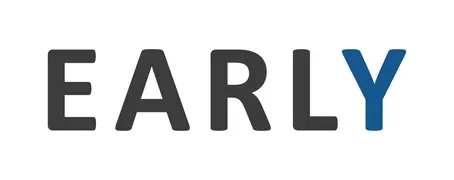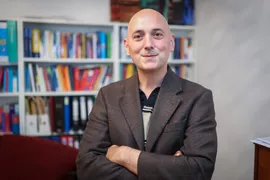Nowadays, young people are often affected by mental health problems. There may be various reasons which are not yet fully understood. To reduce the burden of mental illnesses such as depression and anxiety disorders, knowledge of risk factors is essential to develop preventative measures.
In the EARLY project, Prof. Dr. Orkan Okan, Head of the Assistant Professorship of Health Literacy, and Research Associate Marlene Meyer are investigating how young people's mental health can be supported. The European Union financially supports the project.
"In the EARLY project, we are responsible for the sub-area of mental health literacy of adolescents and young people ('emerging adulthood') and also for the science communication and dissemination of the EU research network, a new and unique combination that we are very much looking forward to," explains Prof. Okan.
The international project, which focuses on the age range from 14 to 25, comprises a total of 19 partner institutions from 14 countries: "Most mental disorders develop at this stage of life. We aim to identify the risk factors. These are not yet fully understood. Thanks to the international approach, cultural differences can also be taken into account," explains Meyer.
A mixed-methods design will be used for this, including quantitative data collection and qualitative interviews. "The interviews will be conducted with various stakeholders, including young people, parents, psychiatrists and psychologists. The aim is to develop frameworks for identifying risk factors," adds the Research Associate. Various questions are asked about the current situation, including: What risk factors could be present? What is the current situation with regard to mental problems?
Building on such findings, the aim is then to interact with the living environments of young people. A curriculum is to be developed to impart knowledge about diseases in schools and, building on this, develop intervention measures to promote better handling. The various stakeholders are also to be addressed in multiple ways: "We have developed a website that is specifically tailored to the different target groups, such as young people and parents. We are also planning to work actively on social media platforms such as YouTube, Instagram, and TikTok to make direct contact with young people and share our findings," says Meyer.
The Assistant Professorship of Health Literacy is mainly responsible for disseminating the project. It also contributes its expertise in mental health literacy to the data collection. International cooperation is an integral part of the implementation: "Cross-national cooperation offers two major advantages: First, it enables better coverage of different cultural backgrounds, which leads to more diverse data. Secondly, it helps ensure that interventions can be implemented in more countries, ultimately benefiting more people," concludes Meyer.
To the homepage of the Assistant Professorship of Health Literacy
To the homepage of the "EARLY project"
Contact:
Prof. Dr. Orkan Okan
Assistant Professorship of Health Literacy
Georg-Brauchle-Ring 60/62
80992 München
phone: 089 289 24986
e-mail: Orkan.Okan(at)tum.de / info.healthliteracy(at)tum.de
Marlene Meyer
Assistant Professorship of Health Literacy
Georg-Brauchle-Ring 60/62
80992 München
phone.: 089 289 24 991
e-mail: marlene.meyer(at)tum.de
Text: Bastian Daneyko
Photos: private


